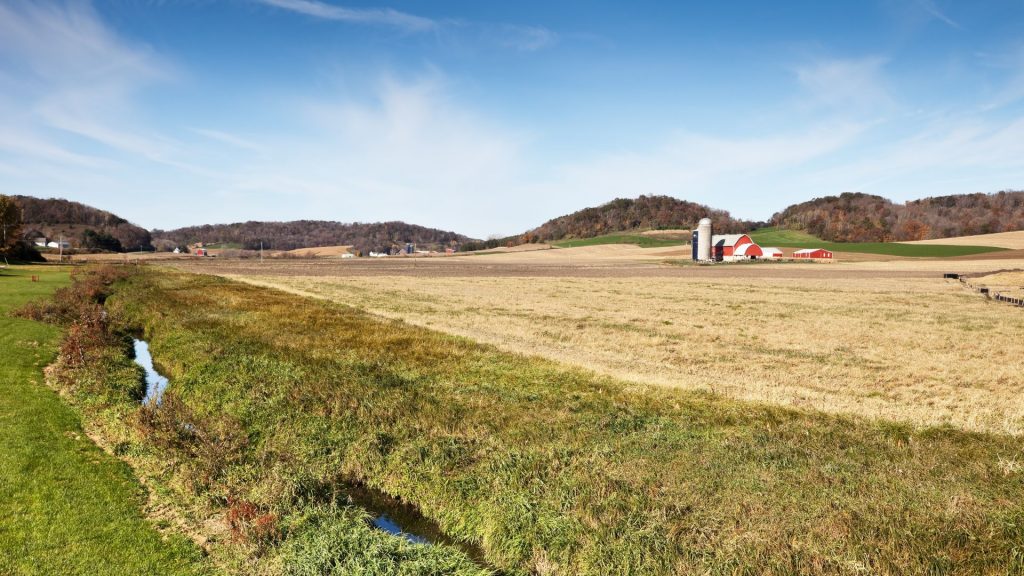Four environmental and agricultural groups, working as partners to bring about long-term solutions to Wisconsin’s water quality issues, cheered the signing of legislation this week to update the state’s farmland preservation program.
The bipartisan bill, signed by Gov. Tony Evers as 2023 Wisconsin Act 42, increases the per-acre tax credits available to participating farmers, while also reducing the minimum time commitment from 15 years to 10 years. The bill was authored by Rep. Loren Oldenburg, R-Viroqua, and Sen. Patrick Testin, R-Stevens Point and received broad, bipartisan support.
Updating the farmland preservation program was a priority issue of the Clean Water Initiative, a joint effort from Clean Wisconsin, the Dairy Business Association, the Nature Conservancy and WI Land+Water to find common ground on water and agricultural issues.
“This legislation is a win for Wisconsin agriculture and conservation,” the groups said jointly.
“We thank Representative Oldenburg, Senator Testin and others for championing the legislation, and we credit lawmakers in both parties as well as Governor Evers for recognizing its importance and doing the bipartisan work necessary to make it a reality.”
Comments about Act 42 from the organizations:
“The Farmland Preservation Program has been an invaluable tool in our state’s efforts to preserve our agricultural land and ensure program participants are farming in ways that protect water quality and soil health. Passing these program reforms will continue to encourage more farmers to join this rewarding program and incorporate conservation into their farm operations.” — Sara Walling, water and agriculture program director of Clean Wisconsin
“Keeping Wisconsin farmland in production agriculture helps preserve the rich farming heritage of Wisconsin’s rural communities. These much-needed updates will create more opportunities for farmer participation and reaffirm our members’ commitment to engaging in proactive agriculture practices that promote the conservation of our land and water resources.
This effort also highlights the positive outcomes possible when the agriculture and environmental communities work together to find solutions that benefit all of Wisconsin. Thank you to all lawmakers who supported these necessary changes to create a stronger Wisconsin agriculture and dairy community.” — Tim Trotter, CEO of the Dairy Business Association
“Increasing incentives for Wisconsin farmers to promote healthy soils and clean water is a win-win for Wisconsin’s agricultural economy and the environment. The Farmland Preservation Program is a highly successful tool for growing regenerative agriculture and increased farmer participation means even stronger protections for our lands and waters.” — Elizabeth Koehler, executive director of The Nature Conservancy in Wisconsin
“The Farmland Preservation Program is unique, as it is the only program in Wisconsin that provides incentives for farmers to maintain working lands that meet conservation standards. These improvements will only improve this important program.” — Matt Krueger, executive director of WI Land+Water
BACKGROUND:
The farmland preservation program incentivizes keeping farmland in production agriculture in exchange for meeting basic conservation standards. Once county conservation staff certify that participants in the voluntary program meet these standards, they receive a per-acre tax credit. However, interest in the program has waned over the past several years.

